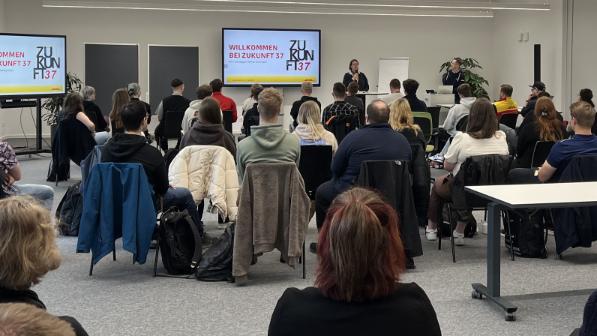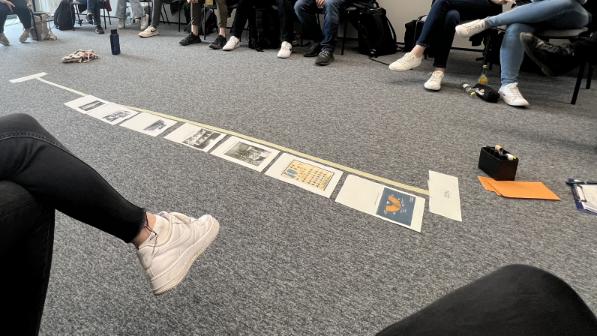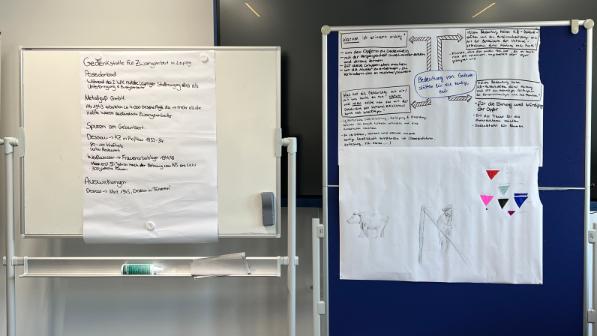
Understanding the past to shape the future
Over the course of three workshop days, the trainees and students will explore the history of National Socialism and forced labour during this period. On the preparation day, the most important key points of history are worked out and on the excursion day, the Buchenwald memorial on the Ettersberg near Weimar is visited. On the follow-up day, what has been learnt will be linked to the present and current issues.
The preparation day will focus on the history of the origins and course of National Socialism. Participants work in small workshop groups to gain an understanding of history by completing various tasks. The interactive nature of the workshops encourages them to do their own research and pursue topics that interest them. This is done, for example, with the help of an interactive map that shows places of forced labour and their history in and around Leipzig.

‘I found the project very interesting, especially as I think we only covered the topic of National Socialism very superficially at school. The personal connection to Leipzig and the surrounding area meant that I internalised the content even more and learned a lot,’ says Emma Selin Göksu, who is in her first year of training as a protection and security specialist.
With sufficient preparation, the trainees and students embark on the excursion day at the Buchenwald Memorial. Accompanied by a person with expertise, they learn about the history of the memorial and can view exhibits from that time in the museum. On the last day, they reflect on what they have experienced, clarify any unanswered questions and finally establish a link to current topics of the day.

A sign of diversity
‘The main aim of the project is to make politics more tangible for young people, to understand how our current democracy came about and to engage with our history so that they can raise their voices at the right moment today,’ emphasises Britta. ‘As a company, we have seen a very clear mandate for action here. Being able to form your own opinion and develop your own ideas are also valuable skills for everyday working life.’ Another aim of the project is to spread the topic throughout the company by involving other departments in order to create more acceptance and tolerance. However, the project is much more than just an educational opportunity for the trainees and students. They are involved in the organisation of the project right from the start, as it is a learning project. This includes, for example, planning the programme or communicating with participants or guests of honour. These skills can be helpful in their later professional careers.
